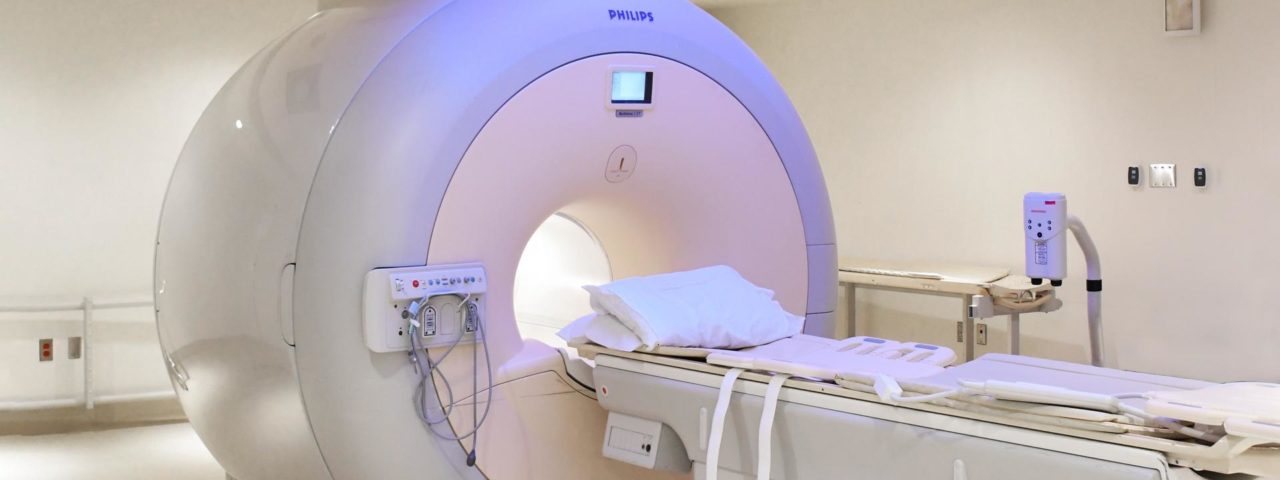Magnetic resonance imaging (MRI) is a safe, painless, and non-invasive way of taking pictures of soft tissues of your body. These images will provide your physician with very clear and detailed pictures of the body part they want greater detail on – whether it’s your head, abdomen, or joint.
MRI allows your doctor to diagnose medical problems inside your body without ionizing radiation or surgery. Using a large magnet, imaging coils, and a computer, we can produce accurate images of any part of your body. MRI scanning involves the use of radio waves and a very strong magnetic field.
At Oak Valley Health, we have a 3.0 Tesla Siemens MRI scanner and a 1.5 Tesla Phillips MRI scanner. These are the latest in MRI technology and make scans easier and safer for patients as they can accommodate more weight. Our newest scanner has a stronger (3T) magnet and it is too strong for certain surgical implants so this is a consideration.
An MRI is performed by a medical radiation technologist (MRT) specialized in MRI technology.
To have an MRI, your doctor needs to fill out a requisition form. Download MRI requisition form.
When a completed requisition is received, a radiologist will prioritize your request based on the urgency of your situation and then your appointment will be scheduled. A prescreening questionnaire is completed by your referring physician and reviewed by staff prior to your booking. You will be asked to fill out a detailed form and it will be reviewed by the technologist when you arrive for your appointment to ensure that it is safe for you to have an MRI.
MRI is not a suitable procedure if you have:
- A pacemaker
- Metallic objects inside your body (dental fillings and orthopaedic hardware are OK)
- Inner ear implants (depending on manufacturer/make/model numbers)
- Some aneurysm clips
- Cardiac implants
PLEASE NOTE: ANY MONITORING SENSORS (I.E LIBRE) OR ATTACHED PUMPS MUST BE REMOVED PRIOR TO MRI
Learn more about making an appointment and coming to our hospitals.
Before Your MRI
Special arrangements are not typically needed if you normally would drive yourself to and from your appointment. However, if you are taking any sedatives on the day of your MRI scan, we do ask that you make arrangements for an alternate driver. If you have arrived and plan on taking a sedative before your scan but do not have an alternate driver, your exam may be rescheduled. Your safety is our utmost concern.
You may eat or drink as you normally would on the day of your scan. Continue to use any prescription medicines.
The only exception is if your MRI has been requested for any abdominal or pelvic scan. For these scans, you are required to fast for six hours prior to your appointment, avoiding food or water. If you have been scheduled for an enterogram (an MRI of the small bowel), you will need to start your preparation for the exam the night before. Download the enterogram preparation sheet. We strongly suggest you plan to go directly home after the procedure.
Please arrive on time for your appointment. You will be given your arrival time and preparation instructions when you book your test. Please bring your health card.
During Your MRI
During your MRI, you will hear a series of sequences. Each sequence creates noise. Earplugs will be provided to protect your ears, as well as an emergency call bell if you have any issues. Once the pictures start, the technologist will be watching you through a window during the entire exam and talking with you over an intercom speaker. Some instructions are prerecorded in English and there is also a library of other languages that may be selected from if needed.
You may be required to have a contrast solution administered by an intravenous (IV) line during your MRI. This contrast helps the radiologist to highlight the area you are having scanned. It is very rare to have a reaction to this solution and it will improve the visibility and accuracy of your MRI scan.
An MRI takes approximately 20 to 40 minutes to complete.
After Your MRI
An MRI has no known side effects or risks and is safe for children as well. If your physician has prescribed you a sedative for claustrophobia during your MRI, please arrange a drive to and from your MRI appointment.
